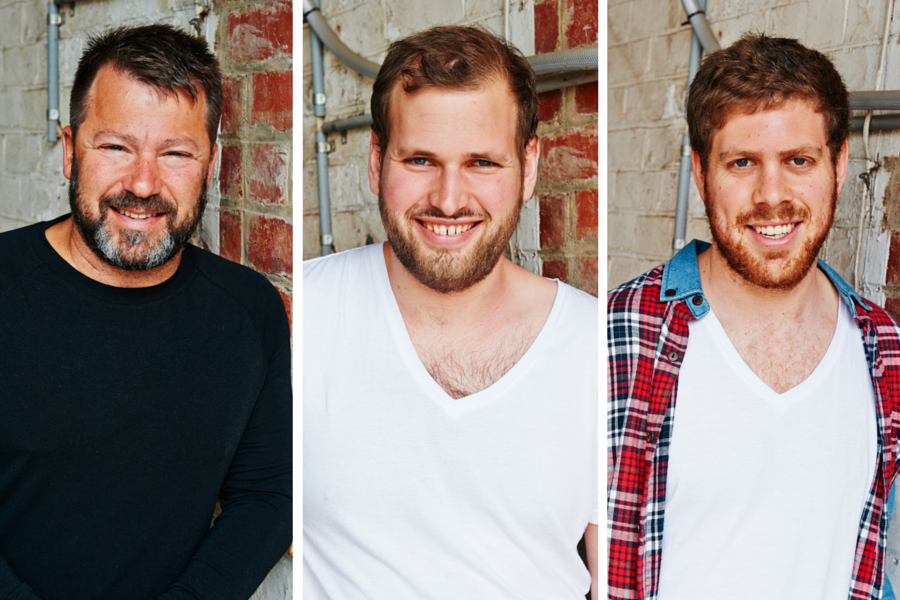While I know that I sat through a number of first aid lessons in high school, learning how to give CPR to a dummy and what to do while waiting for an ambulance, I can’t actually remember any of it. Unless our work requires frequent training, most of us are in the same boat.
Melbourne company Real First Aid, founded by Motti Blum, Ben Krynski, and Michael Boltman last year, wants to provide first aid training that people will remember by tailoring it to the specific situations they may one day find themselves in. While there are hundreds of first aid training services out there, the founders believe that just having a certificate doesn’t mean people are prepared. Boring courses mean a lack of engagement, with employees often resenting the fact that they have to take part.
Blum said, “First Aid training is notoriously dull and boring, very little content is retained and there is at best a limited focus on the practical aspect. Most trainers run a stock standard course for all industries. A school, office place, gym, factory and doctor’s surgery will all go through exactly the same course. Even the handful of trainers who do run practical courses and do tailor their courses to specific industries struggle to prepare their students for the adrenaline, stress and chaos of a real medical emergency.”
Real First Aid differs by inducing that adrenaline through the creation of chaotic atmospheres tailored to specific industries including schools and childcare, sports and gyms, medical professionals, warehouse and manufacturing, and corporates. The startup can also tailor courses to other industries or specific professions. Students must complete a theory component, which can be completed online, and then take part in classes at Real First Aid’s headquarters, or on-site at their workplace.
The startup has created realistic simulations of medical emergencies. It uses role playing, costumes, moulage, fake blood and wounds, sound effects, and pyrotechnics to create high-pressure, stressful scenarios that are as realistic as possible, with the aim of throwing participants into the deep end to force them to remember the theory and skills they have learned in class while dealing with all the distractions that exist in real emergencies. Everything is filmed with GoPros so students can review their performance and learn from their mistakes.
Of course, simulation training isn’t a new concept; it’s used in various industries, particularly in the defence forces and in medical training, but Real First Aid is one of the first to offer it to the average participant.
However, Real First Aid still faces significant competition in the space. St John Ambulance Australia is one of the leading providers of first aid training
Blum admitted, “The biggest challenge is breaking into an industry where there is one dominant company, St Johns, whose name is synonymous with first aid training. A lot of the people we are approaching, like OHS managers, HR managers, and school nurses, are nervous to go with an unknown startup and risk their own credibility in their organisation. Sticking with the status quo is often a lot easier and obviously less risky.”
The other challenge is finding high quality trainers as the startup grows. All of Real First Aid’s current trainers have experience as paramedics and are amenable to learning the startup’s training style.
The startup also recently launched a new project, Defib For Home, through which they want to get defibrillators into as many homes around Australia as possible. Through Defib for Home, consumers can buy one of two machines online in a $1950 package that includes a face to face introduction to the device.
“We are targeting people in the high socio-economic bracket, as defibs are still very expensive. The logic is that if, for example, you’re spending $2000 on upgrading your overseas flights to business class, then maybe sit in economy once and invest in something that will last for 15 years and could save your life. The chances of every having to use it are quite low. But if you ever do need it you’re really going to hope that you have one around,” Blum explained.
The founders have self-funded the development and growth of Real First Aid and Defib for Home thus far, and have no plans as of yet to find investment. Though the service is already active around Australia, the founders will begin promoting courses more actively in Brisbane and Sydney from early next year. At the moment the startup runs around three courses a week; by mid-2016, Blum said they want to be running a course each day.
“But we want to be getting the right clients. If companies call us up and are looking for the cheapest and quickest way to get their staff certified we politely tell them to go somewhere else. We’re looking for companies and industries that really care about knowing first aid and being prepared to deal with a medical emergency, not someone who just wants the certificate.”
That attitude reflects what Real First Aid is about at its core: saving lives.
Blum said, “The proudest moments are when students tell us that this is the only first aid course they have ever left feeling confident and prepared to deal with a medical emergency if they ever encounter one.”




















Trending
Daily startup news and insights, delivered to your inbox.